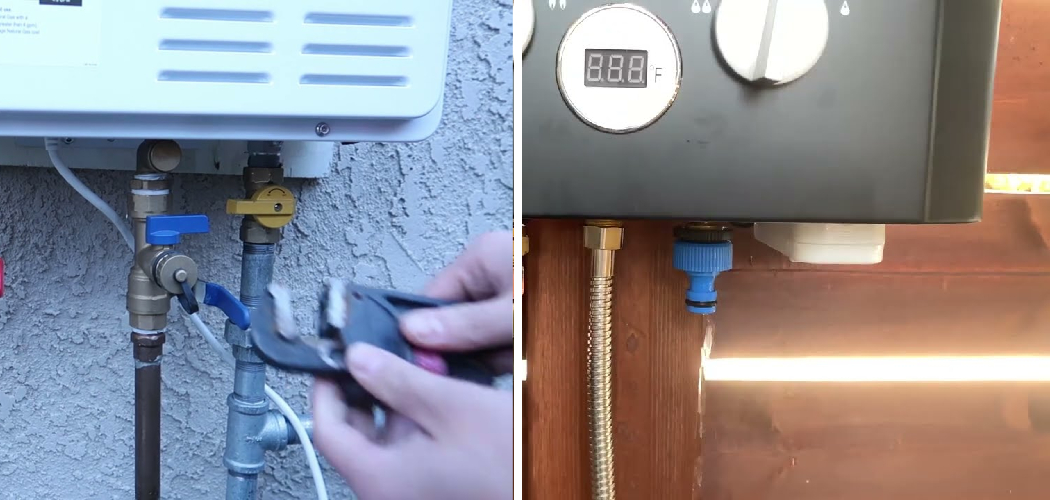With winter rapidly approaching and temperatures set to plummet, keeping your hot water heater from freezing is likely top of mind for many homeowners. A frozen hot water heater is an inconvenience nobody wants to deal with – repairing or replacing a frozen unit can cost hundreds of dollars. That’s why it’s so important to be proactive and take steps now to insulate and protect your water heater.
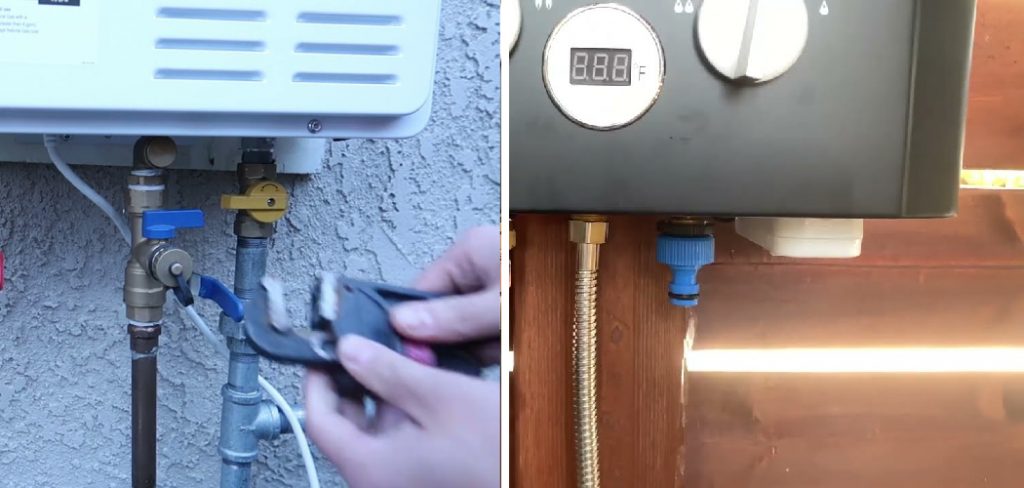
In this blog post, I’ll walk through some simple strategies on how to keep hot water heater from freezing that you can implement immediately to give your water heater the best chance of surviving the bitter cold. From adding extra insulation to allowing a small trickle of hot water to flow, learning these winterization techniques can help you say goodbye to the cold and hello to warm showers all season long.
Necessary Items
Before diving into the steps for preventing a water heater from freezing, let’s ensure you have all the necessary items on hand. For most of these methods, you’ll need some essential tools and supplies, including:
- Insulation – this can be purchased at any hardware store and is typically used to wrap pipes or ductwork.
- Duct tape – is also available at any hardware store.
- A heat lamp or space heater – either of these items can provide a heat source near your water heater.
- A caulking gun and silicone caulk will come in handy if any cracks or gaps around your water heater need to be sealed.
- A thermometer – this will allow you to monitor the temperature of your water heater and ensure it stays above freezing.
10 Steps on How to Keep Hot Water Heater From Freezing
Now that you have all the necessary items, let’s go through some steps you can take to prevent your water heater from freezing:
Step 1: Insulate the Pipes
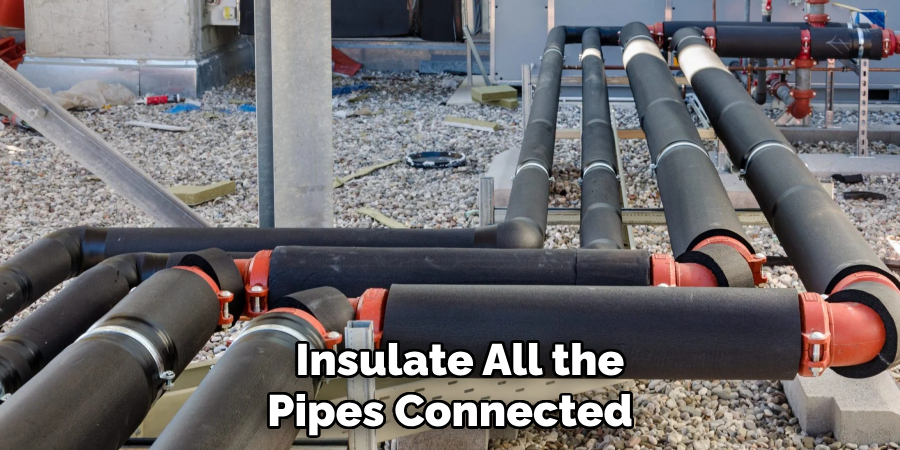
The first step in preventing a frozen water heater is to insulate all the pipes connected to it. This includes the incoming and outgoing lines that carry the water to and from your water heater. You can use pre-cut foam pipe insulation or wrap the pipes with insulation batting, securing them with duct tape.
Step 2: Wrap Up Your Hot Water Heater
Next, you’ll want to insulate your actual water heater. This can be done with a specially designed water heater blanket or by wrapping it in insulation batting secured with duct tape. Cover the entire tank, leaving any controls and vents exposed.
Step 3: Seal Any Cracks and Gaps
Check for gaps or cracks around your water heater using your caulk gun and silicone caulk. These can allow cold air to seep in and cause your water heater to freeze. Seal any openings you find to keep the heat inside.
Step 4: Keep the Temperature Above Freezing
While it may be tempting to turn down the temperature on your hot water heater to save energy, it’s essential to keep it above freezing during the winter months. Even a tiny trickle of hot water flowing through your pipes can help prevent them from freezing.
Step 5: Use a Space Heater or Heat Lamp
If you can access an electrical outlet near your hot water heater, consider using a space heater or heat lamp nearby. This will provide a heat source to keep the area around your hot water heater warm.
Step 6: Open Cabinet Doors
Consider keeping the doors open during freezing temperatures if your hot water heater is in an interior closet or cabinet. This will allow warm air inside your home to circulate around the water heater and prevent it from freezing.
Step 7: Drip a Faucet
Like keeping the temperature above freezing, allowing a small trickle of hot water to flow through your pipes can prevent them from freezing. This can be done by simply turning on a faucet in your home and leaving it running at a slow drip.
Step 8: Drain Outdoor Hoses and Faucets
If you have outdoor hoses or faucets connected to your water heater, drain them before the temperature drops. This will prevent any water from freezing and causing damage to your pipes.
Step 9: Monitor the Temperature
Keep an eye on the temperature of your water heater by regularly checking it with a thermometer. If you notice that it’s getting close to freezing, take action immediately by implementing some of the steps listed above.
Step 10: Be Prepared
Even with all these precautions, there is still a chance that your hot water heater could freeze. To prepare for this possibility, make sure you know how to shut off the water supply to your water heater and have the number for a plumber handy, just in case.
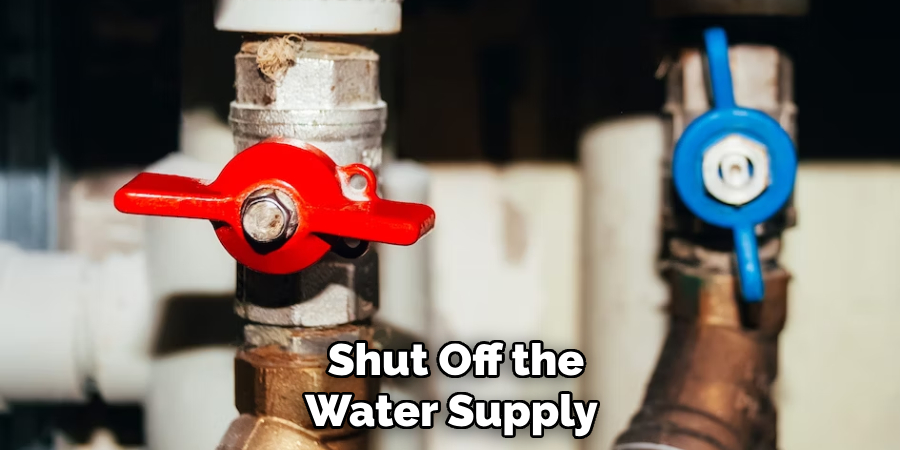
Don’t let a frozen water heater ruin your winter. By following these steps and taking a proactive approach to winterizing your hot water heater, you can rest easy knowing that it will stay warm and functional throughout the coldest months of the year. So, stock up on insulation, grab your caulk gun, and take the necessary steps to keep your water heater from freezing this winter!
8 Things to Avoid
While there are many steps you can take to prevent your water heater from freezing, there are also some things you should avoid doing:
1. Don’t Turn Off the Heat in Your Home
As mentioned before, it’s essential to keep the temperature in your home above freezing to prevent your hot water heater from freezing. So even if you’re going away for an extended period, leave the heat on at a low setting.
2. Don’t Ignore Cracks and Gaps
If you find any cracks or gaps around your water heater, don’t ignore them. These can allow cold air to seep in and cause your hot water heater to freeze.
3. Don’t Forget to Disconnect Hoses
Make sure to disconnect any outdoor hoses or faucets connected to your hot water heater before the temperature drops. This will prevent any water from freezing and causing damage.
4. Don’t Use an Extension Cord for a Space Heater
If using a space heater near your hot water heater, plug it directly into an outlet. Using an extension cord can be dangerous and increase the risk of fire.
5. Don’t Overlook Exterior Vents
Check the exterior vents around your hot water heater and ensure they are clear of any debris, such as leaves or snow. This will allow proper airflow to prevent freezing.
6. Don’t Leave Cabinet Doors Open for Extended Periods
While leaving cabinet doors open can help circulate warm air around your hot water heater, close them when not in use. Leaving them open for extended periods can waste energy and damage your pipes if the temperature drops too low.
7. Don’t Neglect Maintenance
Regular maintenance is important for your hot water heater’s overall health and functionality. Make sure to schedule annual inspections and cleanings to catch any potential issues before they become more significant problems.
8. Don’t Panic if Your Hot Water Heater Freezes
Despite your best efforts, it’s still possible for your hot water heater to freeze. In this case, don’t panic and try to thaw it out with a space heater or hair dryer. Instead, call a professional plumber who can safely and effectively thaw your hot water heater without causing damage.
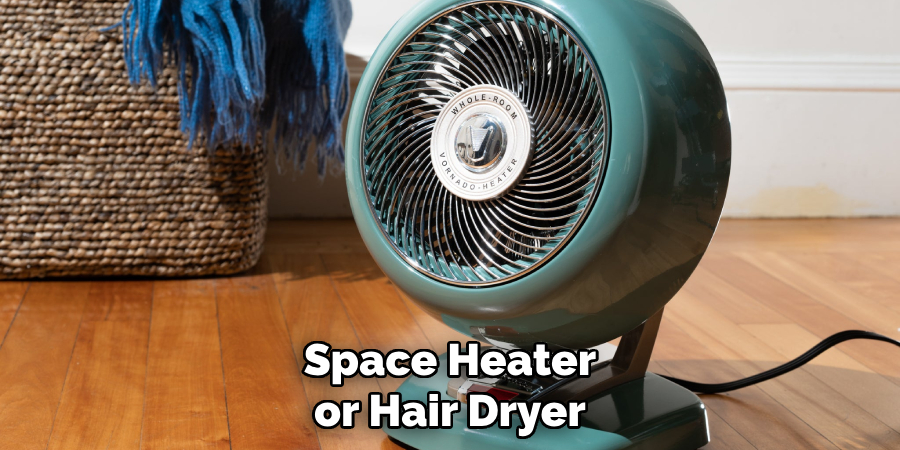
Remember, taking the necessary precautions and being prepared is critical to preventing your hot water heater from freezing during the winter months. By following these steps and avoiding potential mistakes, you can ensure that your hot water heater will function correctly year-round.
Frequently Asked Questions
Can I Use a Hair Dryer to Thaw a Frozen Hot Water Heater?
No, using a hair dryer or any other heating device is not recommended to thaw a frozen hot water heater, as it can cause damage. It’s best to call a professional plumber for assistance.
How Often Should I Inspect and Clean My Hot Water Heater?
It’s recommended to schedule annual inspections and cleanings for your water heater. This will help catch potential issues early on and keep your hot water heater functioning properly.
Should I Leave Cabinet Doors Open All Winter?
No, it’s not necessary to leave cabinet doors open all winter. Only open them during freezing temperatures to allow warm air to circulate around the hot water heater. Close them when not in use to avoid wasting energy.
Conclusion
In conclusion, keeping your water heater from freezing is crucial for maintaining a functional and comfortable home during the colder months. By following these simple steps on how to keep hot water heater from freezing, you can prevent any potential damage or disruption to your daily routine. Regularly check the temperature setting, insulate your pipes, and drain and disconnect any external water sources.
Additionally, incorporating DIY solutions such as installing a heating blanket or using a space heater can provide extra protection against freezing temperatures. Not only will this save you time and money in the long run, but it will also ensure you have access to hot water whenever needed.
So don’t wait until it’s too late – take action now to protect your hot water heater from freezing! With a little effort and diligence, you can enjoy a warm and functioning home all winter.
